Insights of a Running Champion: How the HUAWEI WATCH FIT 4 Pro Became My All-in-One Training Partner

Written by Hendro Yap Kim Lung
Insights of a Running Champion:
How the HUAWEI WATCH FIT 4 Pro Became My All-in-One Training Partner
6 min readPublished on 22/09/2025 · 17:20

From Bogor to the World Stage: My Journey as a Racewalker
My name is Hendro, and I am a professional racewalker from Bogor, West Java, Indonesia. My journey in
athletics began in 2004 when I was in Junior High School. At the time, my family was facing financial
difficulties, and it became clear that continuing my education beyond junior high would be a challenge.
My father simply could not afford the costs of high school.
It was then that my sports teacher gave me advice that changed the course of my life: try to earn a
scholarship through sports. I took this advice seriously, entered a student athletics competition across
the West Java Province and won. That moment marked the beginning of my career in competitive sports and
it enabled me to continue my education. Since then, I have dedicated myself to athletics and have
proudly represented my country on national and international stages.
In this article
01.Training Before Smart Technology: Pen, Paper and Discipline
02.How Smartwatches Changed My Training
03.Why Data Matters: A Real Training Example
04.A Champion’s Daily Routine
05.Understanding the Different Training Methods
06.What is Interval Training?
07.Medium-Pace and Endurance Training
08.Why Balance, Ground Contact and Vertical Oscillation Matter
09.Conclusion
01
Training Before Smart Technology: Pen, Paper and Discipline
When I first began training, the watches we used were basic, either analog or digital with
simple
stopwatch functions. They could not measure heart rate, track distance or count steps. To
monitor
my performance, I manually timed each lap on the 400-meter track, memorized the split times
and
wrote everything down in a notebook to analyze my weekly progress.
This routine was tedious, but it was essential. Tracking performance data is key for any
athlete
preparing for a championship. Even now, I still jot down certain notes by hand. But today,
technology
has made this process faster, more detailed and more efficient, thanks to smartwatches.

02
How Smartwatches Changed My Training
With the help of modern smartwatches like the HUAWEI WATCH FIT 4 Pro, I can now access and analyze detailed performance data instantly and accurately. I can track my heart rate, average cadence and pace, speed per lap, lap time and GPS-based distance. These features allow me to better understand my body's response to training and identify obstacles early using only the watch.
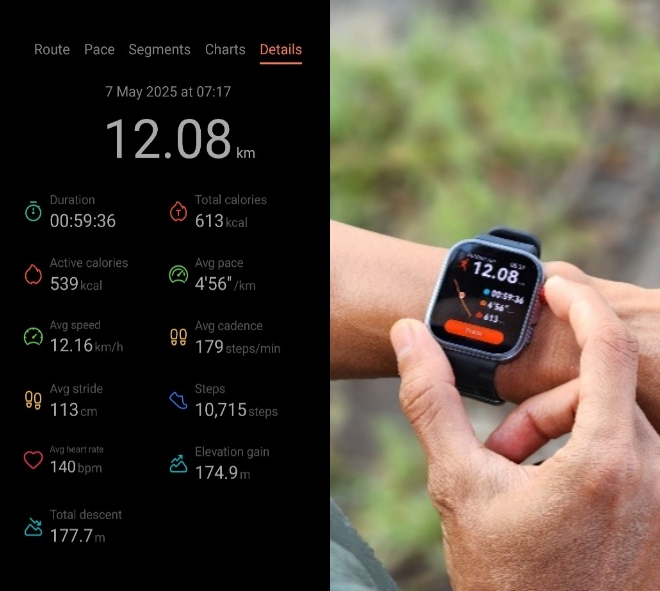



The watch even helps you warm up, tracks your workouts, and offers running courses, which is especially helpful when you're just starting a running routine.
As an athlete in an aerobic endurance sport, I often train at high altitudes, typically between 700 and 1700 meters above sea level. Smartwatches that track elevation and blood oxygen levels are especially helpful in these conditions. They provide insight into how my body is coping, allowing me to make adjustments during the session and avoid overtraining or injury.

Sapphire Glass and Titanium
So Light, So Fit
Pro-level Outdoor Sports
HUAWEI TruSense System Health Tracking
03
Why Data Matters: A Real Training Example
Let me give you an example. During an interval training session of 4 x 2000 meters, I might
feel like I gave everything I had, yet my target time is not met. Instead of guessing why, I
check my watch and see that my heart rate peaked at 177 bpm. I compare that with data from a
previous session where I hit the target time with a heart rate between 140 and 150 bpm. That
is a clear sign something was off, maybe I was overtired, dehydrated or not fully recovered.
This kind of immediate insight is only possible through real-time tracking. Without it,
athletes may miss warning signs and push through pain or fatigue, risking injury and
declining performance.


"With HUAWEI WATCH FIT 4 Pro I can train smarter, track better and push further."
04
A Champion's Daily Routine
Being a professional athlete requires discipline in every part of life, not just on the
track. My day begins at 5:15 in the morning with a light breakfast if needed, followed by my
first training session. Afterwards, I usually do supplementary exercises to support my
performance. Nutrition is also a priority. I eat balanced meals and take multivitamins to
meet the physical demands of training.
Rest is just as important. I nap from 13:00 to around 15:40 and go to bed by 22:00 to ensure
proper recovery. Lack of sleep directly impacts training quality, so I monitor my sleep
patterns carefully, another area where my smartwatch helps.
My weekly training consists of 11 sessions:
• Monday to Friday: Morning (06:00 until finish) and afternoon (16:00 to 17:30)
• Saturday: Morning session only
• Sunday: Rest day
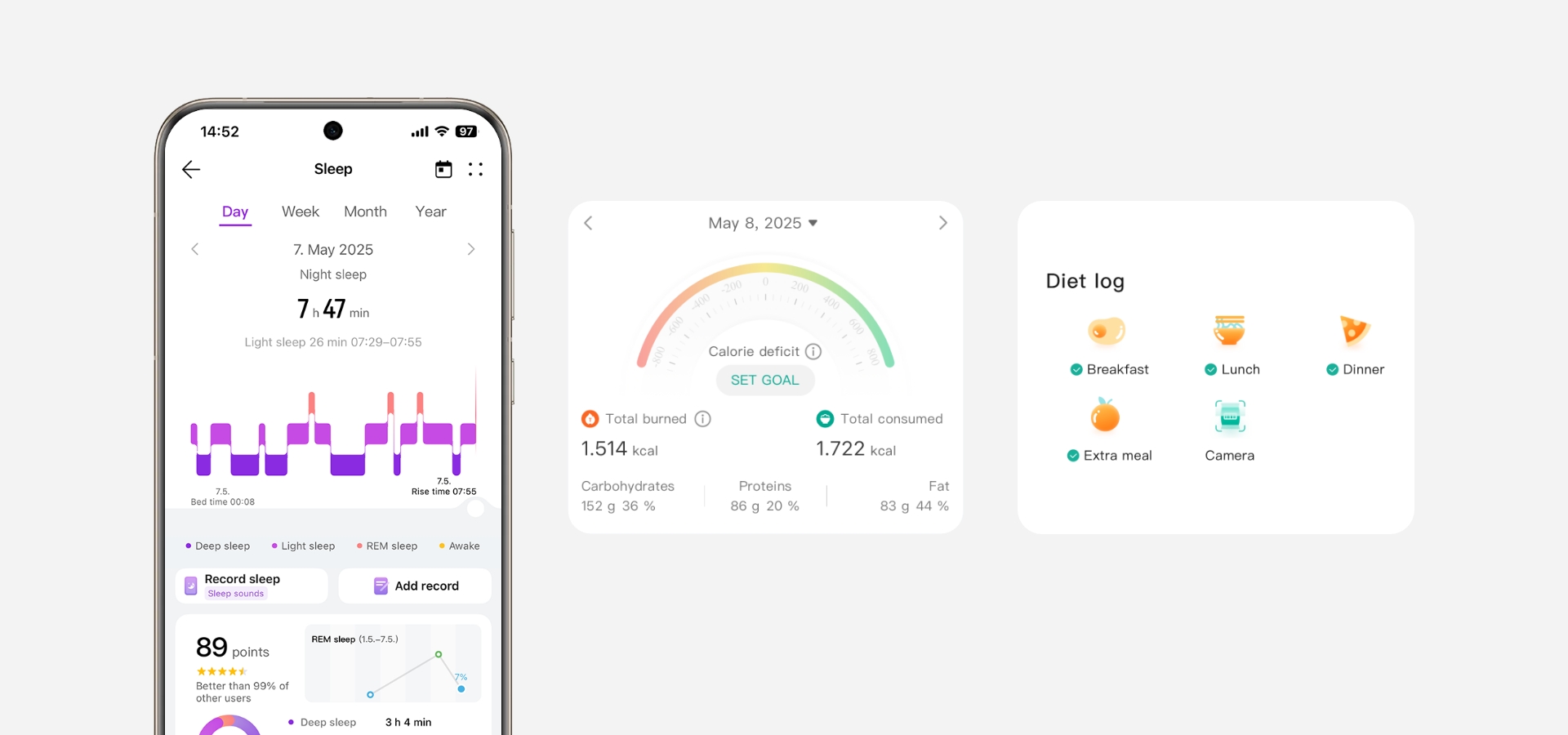
Each session has a specific focus. For example, Monday mornings usually include a 12 to 15 kilometer track walk with increasing pace. The first 4 kilometers at 5:00 minutes per kilometer, which is 2:00 per lap. The next 4 kilometers at 4:50 minutes per kilometer. The final 4 kilometers at 4:40 minutes per kilometer. Afternoon sessions are lighter, around 10 kilometers at a relaxed pace of about 5:10 minutes per kilometer. These paces are not chosen randomly. They are based on test results and my current condition.

05
Understanding the Different Training Methods
To reach peak performance, I don’t just train hard, but I train with purpose. Therefore, my
coach provides me with a variety of training methods, each having its own role in improving
different areas of fitness. These include:
• Interval Training
• Medium-Pace Training
• Endurance Strength
• Strength Training
All of these help develop key aspects of a runner’s performance such as:
• VO₂Max (maximum oxygen uptake)
• Strength and speed endurance
• Fitness and recovery capacity
Let me explain what some of these methods look like in practice.
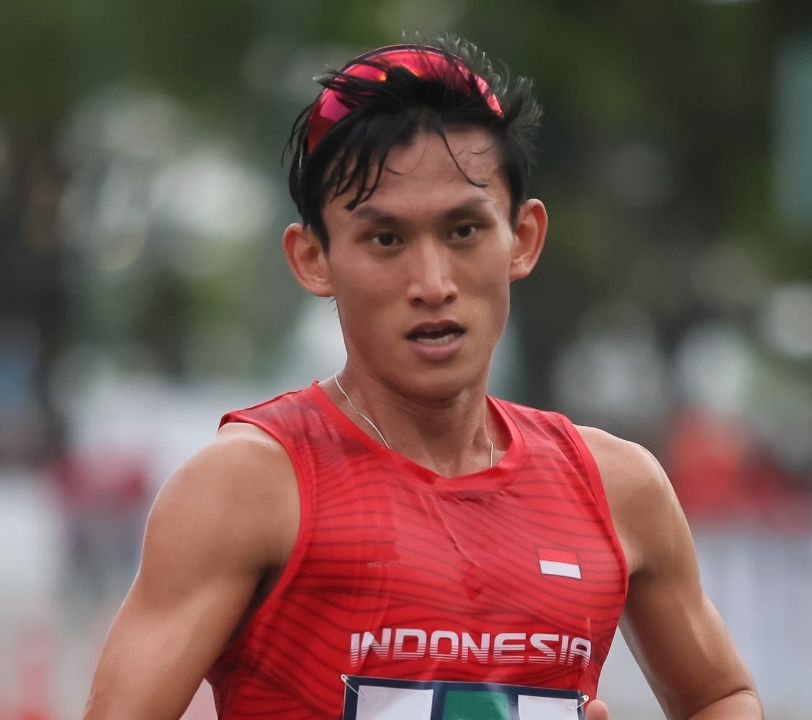
"Choosing the right training speeds is crucial. Too fast and you risk burnout. Too slow and you do not make progress."
06
What is Interval Training?
Interval training is all about alternating between high-intensity effort and short recovery
periods. For example, I might run 12 sets of 1000 meters at 102-105% of my current ability,
with 2-minute rests in between. Or 8 sets of 2000 meters at 100-103% intensity. These
scenarios are designed to push the limits of my cardiovascular system and improve muscle
endurance.
Thanks to the HUAWEI WATCH FIT 4 Pro, I can monitor each interval’s heart rate,
lap pace and recovery
response in real time. This clear feedback is essential for guiding me through the sessions.
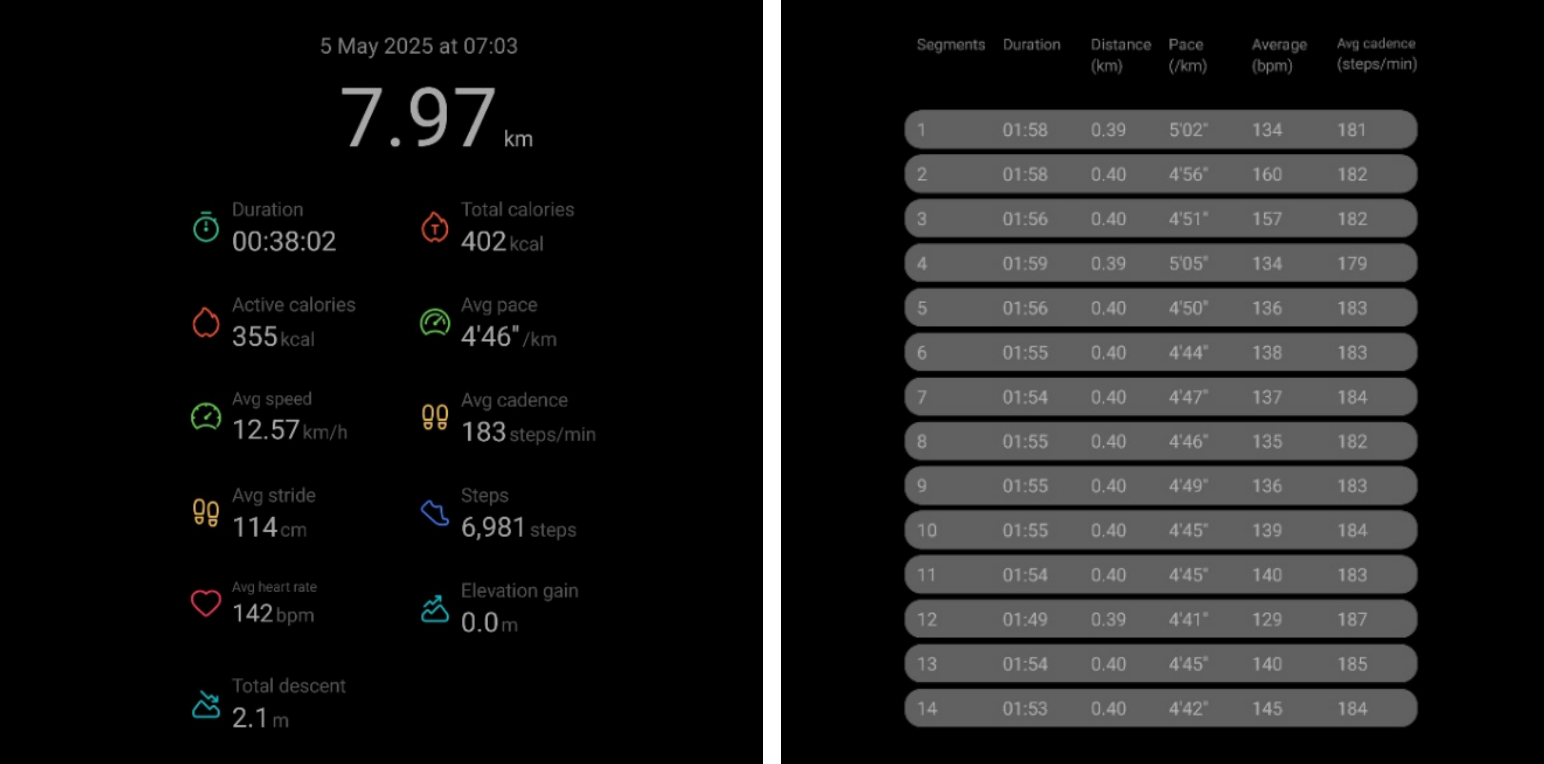
07
Medium-Pace and Endurance Training
Medium-pace training involves sustained effort at around 90-95% intensity. For example, I
might run 8000 meters on the track at a steady 1:53 – 1:55 per lap. This kind of training
helps build pace control and aerobic strength.
Endurance training, on the other hand, is about distance. It involves running longer
sessions at a steady pace, like a 24-kilometer walk under 5 minutes per kilometer. These
workouts build mental toughness and stamina, especially important for longer race distances.
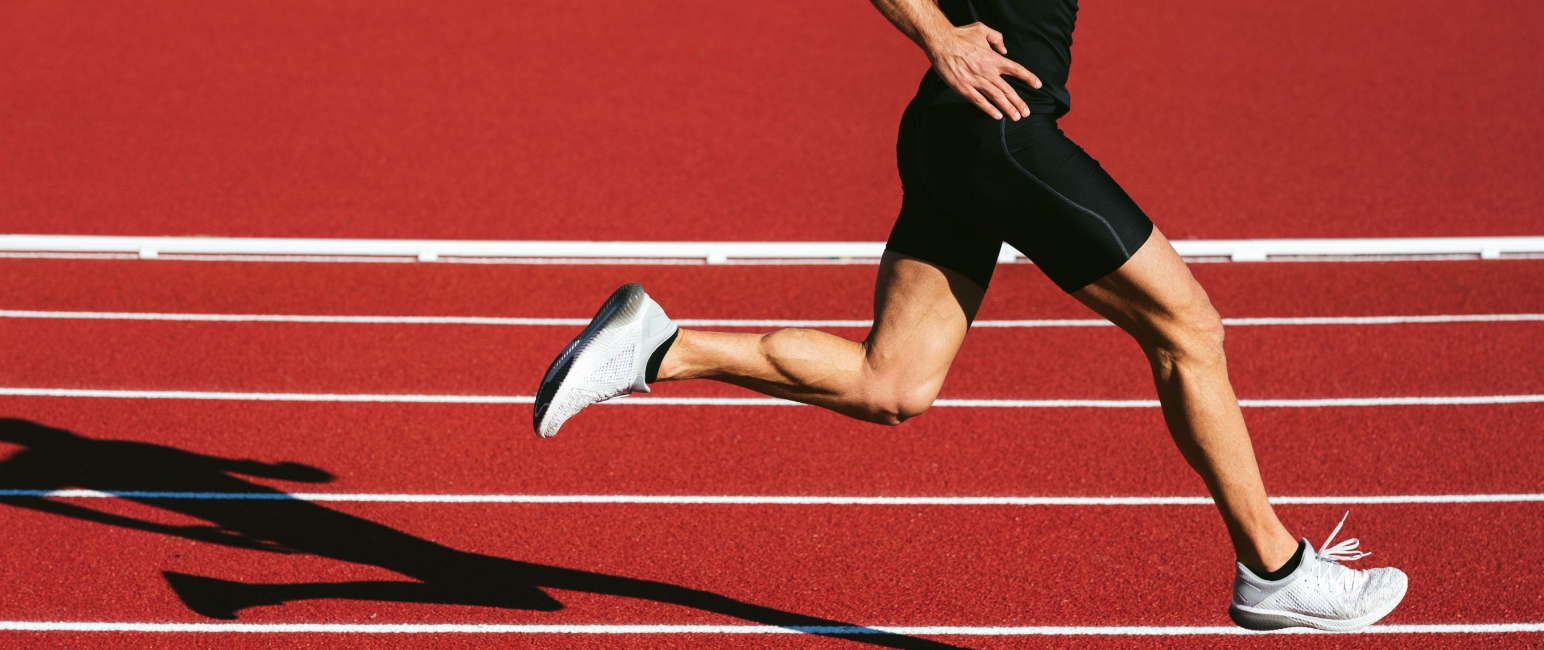
08
Why Balance, Ground Contact and Vertical Oscillation Matter
Tracking features like heart rate, step count and length and distance are all standard in
most smartwatches. But what truly sets apart and advanced sports watch from the basic ones
are performance-focused features like:
• Balance Analysis
• Ground Contact Time
• Vertical Oscillation
These are game changers for me as a racewalker. The balance analysis helps me see if there’s
a difference between the strength on my left and right sides. Imbalances can lead to injury
or affect my race-day performance. Ground contact time tells me how long my foot stay in
contact with the ground. This is important for racewalkers, aiming for quick and efficient
steps. Vertical oscillation shows how much my body moves up and down with each step. The
less vertical bounce, the more efficient the movement.
Not many smartwatches offer all of these features, however, I found that the HUAWEI WATCH FIT 4 Pro does.
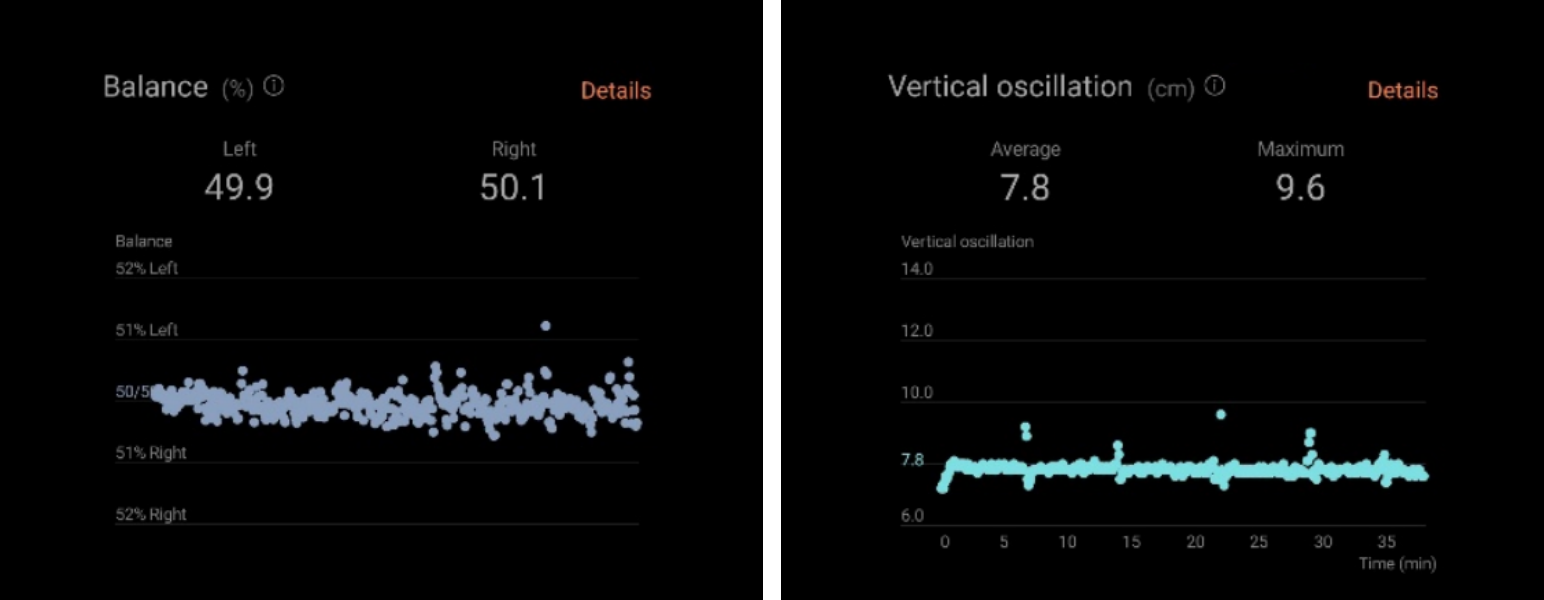
CONCLUSION
For athletes like me, smartwatches have become an essential part of daily training — nowadays,
they are simply impossible to imagine away from any serious training routine. Devices like the
HUAWEI WATCH FIT 4 Pro are no longer just optional extras but core tools
that support
performance, recovery, and long-term progress.
What makes this technology so powerful is not just the data itself, but the ability to analyze
it over time. I can compare intervals, monitor my condition at altitude, detect signs of
overtraining, and adapt my plan accordingly — all from my wrist. Whether preparing for a major
competition or just staying consistent during base training, the smartwatch keeps me focused,
informed, and connected to my body every step of the way.
Read more
Explore
Copied









